Trekking to Everest Base Camp from Kathmandu is a once-in-a-lifetime opportunity that captivates adventurers seeking to enjoy the grandeur of the Himalayas. This 13-day journey offers a carefully curated itinerary, blending breathtaking natural scenery with rich cultural experiences. Hikers will not only witness the majestic peaks of the world’s highest mountain but also explore the traditions and communities of the Sherpa people. With expert guidance and a focus on safety, this trek promises an unforgettable adventure that leaves a lasting impression on the soul.
Key Points
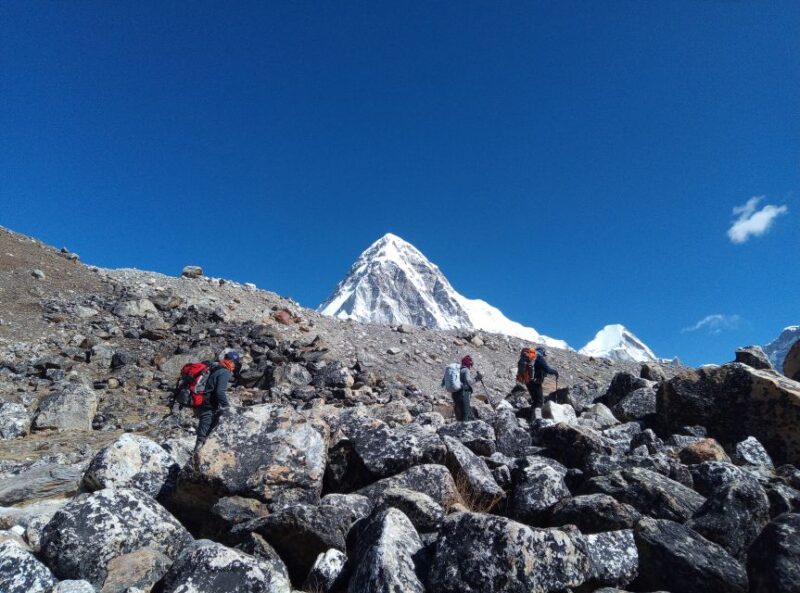
- The 13-day Everest Base Camp trek from Kathmandu offers a comprehensive Himalayan adventure, including travel to Lukla, high-altitude exploration, and culture.
- The trek features scenic mountain views, opportunities to observe wildlife, and authentic interactions with local Sherpa communities, providing a deep cultural experience.
- Reaching Everest Base Camp at an elevation of 5,400 meters is a highlight, requiring proper acclimatization and guidance from experienced guides to manage the physical and mental challenges.
- The trek includes a spiritual ceremony at the Tengboche Monastery, enhancing the cultural understanding and overall trek experience.
- Comprehensive travel insurance is advised for this high-altitude trek, as the safety and preparedness of the traveler is of utmost importance.
Trek Overview
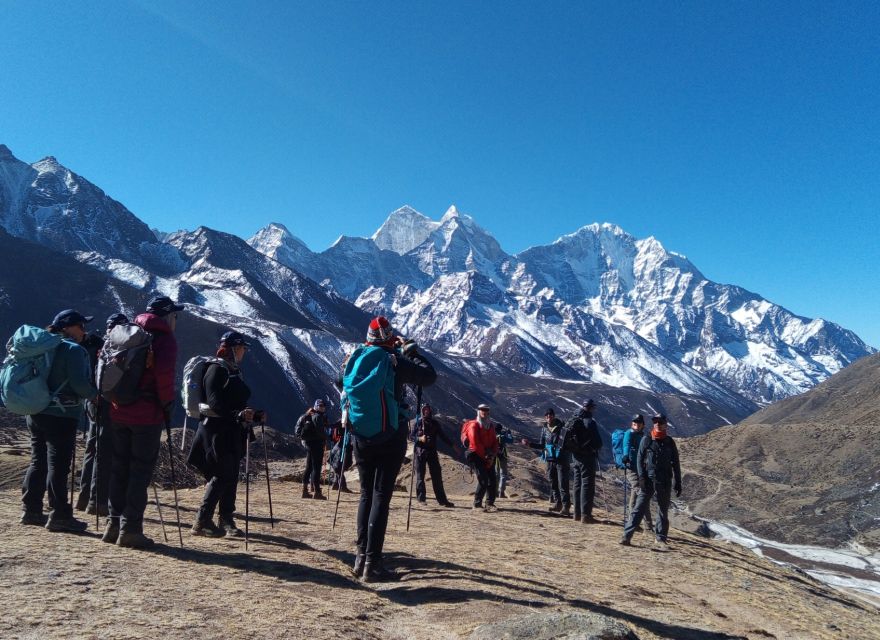
The Everest Base Camp Trek is a 13-day adventure that showcases the majestic Himalayas, offering trekkers a glimpse into the region’s breathtaking landscapes and rich cultural heritage.
This 15-day journey, including travel and buffer days, starts from Kathmandu and takes hikers on a remarkable trek to the legendary Everest Base Camp.
The trek is priced at £1,033.09 per person, with a free cancellation policy up to 24 hours in advance.
Participants can reserve their spot with no upfront payment, making it an accessible and convenient option for adventure-seekers.
The trek combines stunning natural scenery, culture, and the thrill of high-altitude exploration, promising an unforgettable experience for all who undertake this remarkable journey.
Ready to hit more trails? More hiking adventures we feature in Mount Everest
Itinerary Highlights
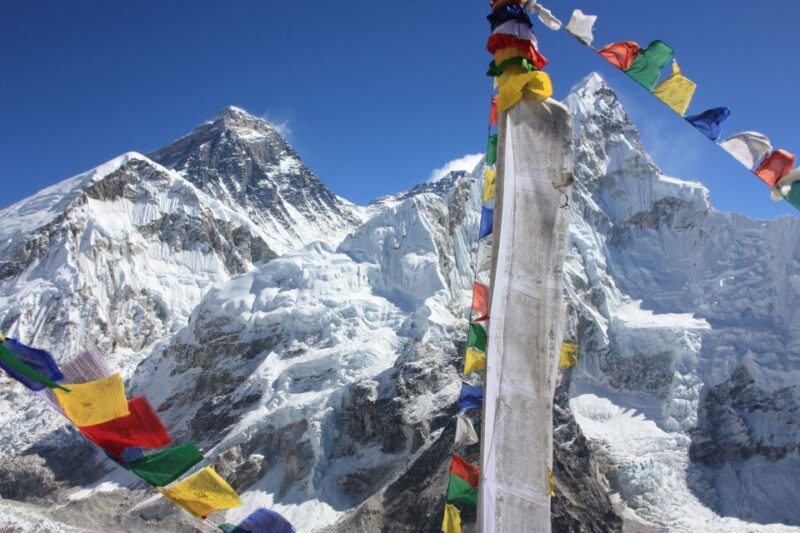
The 15-day Everest Base Camp Trek begins with participants arriving in Kathmandu on Day 1, where they’ll transfer to the Kathmandu Suite Home Hotel. This sets the stage for the incredible journey ahead, as trekkers embark on a flight to Lukla on Day 2 and commence their trek to Phakding, taking around 3 hours.
| Day | Destination | Elevation |
|---|---|---|
| 3 | Namche Bazaar | 3,535 m |
| 5 | Tengboche | 3,850 m |
| 6 | Dingboche | 4,350 m |
| 8 | Lobuche | 4,950 m |
| 9 | Everest Base Camp | 5,400 m |
The trek continues with acclimatization days, visits to monasteries, and the highlight – reaching the iconic Everest Base Camp on Day 9.
Inclusions and Exclusions
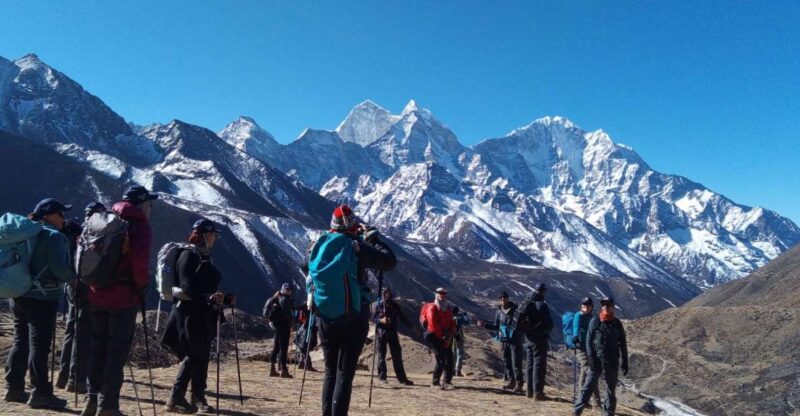
As part of the Everest Base Camp Trek package, the tour company includes:
-
Airport pickup and drop-off
-
1 guide and 1 porter per 2 trekkers
-
Accommodation at Kathmandu Suite Home and guesthouses during the trek
-
All meals during the trek.
However, the package excludes:
-
Round-trip flight to Lukla
-
Trek permit
-
Beverages on the trek
-
Trekking equipment rental
-
Hotel shower charges
-
Electronic device charges.
Travelers are also responsible for their own travel insurance for personal accidents and rescue evacuation, as well as gratuity for the guide and porter(s).
It’s important to be aware of these inclusions and exclusions when budgeting for the Everest Base Camp Trek.
Nature and Culture
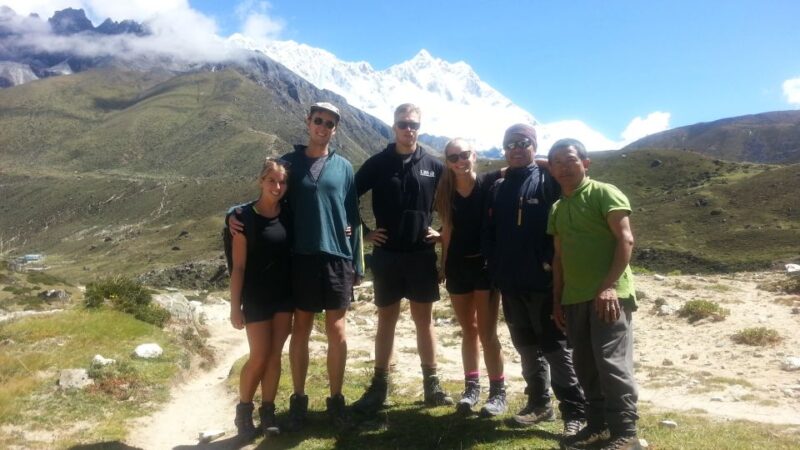
One of the main highlights of the Everest Base Camp Trek is the opportunity to experience breathtaking natural landscapes and diverse local cultures along the way.
Trekkers will be awestruck by the majestic peaks of the Himalayas, including the iconic Mount Everest. The trek also offers a chance to observe the unique wildlife, such as the elusive Himalayan musk deer and the vibrant Danphe pheasant.
Immersing oneself in the local communities, trekkers can witness the traditional way of life, from the colorful prayer flags to the warm hospitality of the Sherpa people.
The cultural ceremony at Tengboche Monastery further enhances the spiritual connection with the region’s Buddhist heritage.
More Great Thing To Do NearbyLocal Life
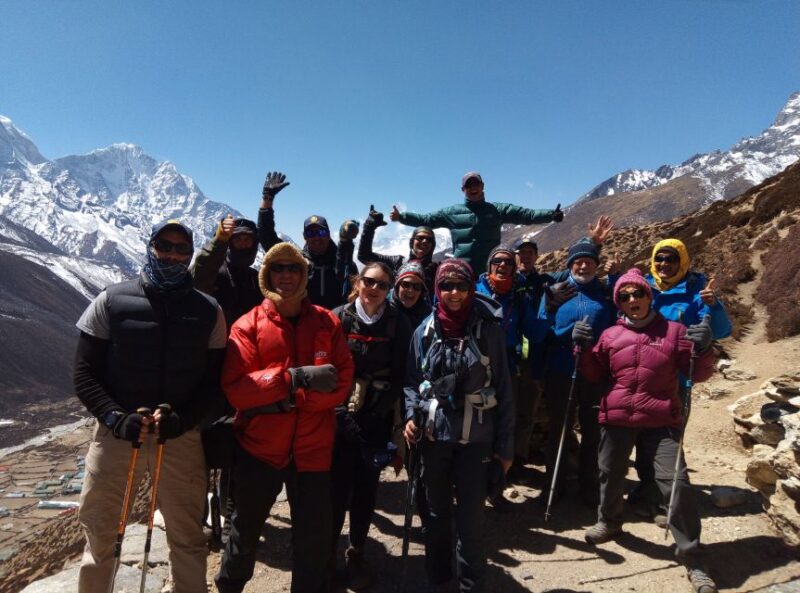
Trekkers can enjoy the genuine hospitality of the local Sherpa communities, observing their traditional way of life and cultural practices firsthand.
Along the trail, you’ll encounter friendly faces and warm smiles as you pass by monasteries, teahouses, and small villages.
Take the time to interact with the locals, learn about their customs, and gain insights into their daily routines.
From sharing meals to participating in spiritual ceremonies, you’ll have the opportunity to forge meaningful connections and gain a deeper appreciation for the Sherpa culture.
These interactions will leave you with cherished memories and a greater understanding of the resilient people who call the Himalayas their home.
High-Altitude Survival
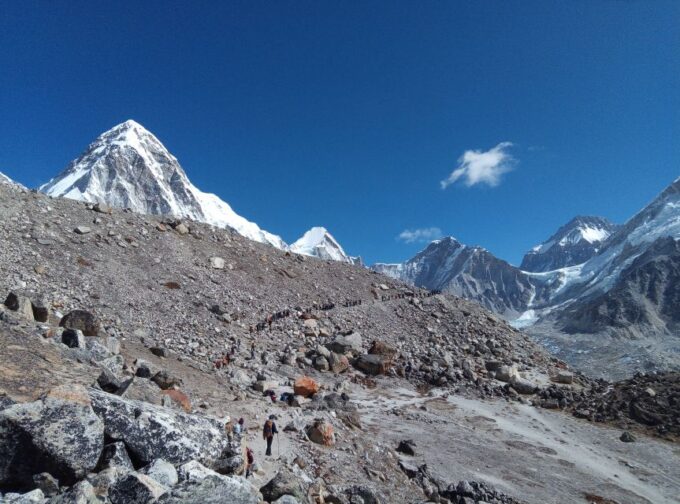
Navigating high-altitude challenges is a crucial part of the Everest Base Camp Trek, as trekkers must adapt to the demanding conditions to ensure a safe and successful journey.
The trek takes adventurers to elevations over 5,000 meters, where the air becomes increasingly thin and oxygen levels drop significantly.
Trekkers learn valuable skills like proper hydration, pacing, and recognizing signs of altitude sickness.
With the guidance of experienced guides, they’re equipped to handle the physical and mental strain of high-altitude trekking.
Proper preparation and acclimatization help trekkers overcome the obstacles, allowing them to fully enjoy the breathtaking landscapes and cultural experiences that make the Everest Base Camp Trek so remarkable.
Cultural Ceremony
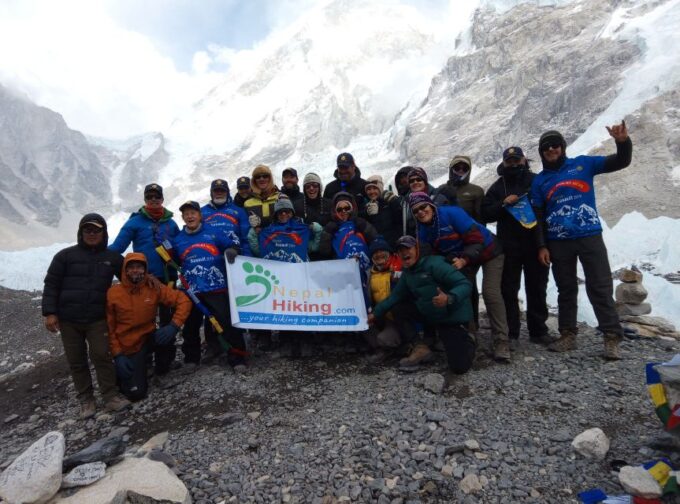
Participating in a prayer ceremony at Tengboche Monastery offers trekkers a profound culture, allowing them to connect with the sacred traditions of the Himalayan region. During this experience, visitors witness the chanting of Buddhist monks, observe the intricate rituals, and feel the reverent atmosphere of the 300-year-old monastery. This cultural encounter provides insight into the deep-rooted spirituality that permeates the Everest region.
| Benefits of the Cultural Ceremony | ||
|---|---|---|
| Connects trekkers with local traditions | Offers a deeper understanding of Tibetan Buddhism | Enhances the overall trek experience |
This memorable event enriches the Everest Base Camp trek, leaving a lasting impression on those seeking to enjoy the captivating culture of the Himalayas.
Health and Safety Considerations
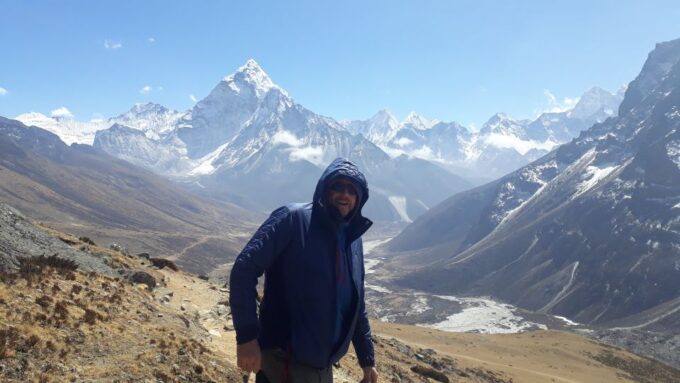
While the Everest Base Camp trek offers a remarkable cultural and natural experience, it’s crucial for prospective trekkers to carefully consider their health and physical capabilities before embarking on this high-altitude adventure.
The trek isn’t suitable for pregnant women, individuals with back or heart problems, or those with mobility impairments. Trekkers should be in good physical condition and accustomed to high-altitude environments.
It’s essential to take precautions against altitude sickness, including proper acclimatization, hydration, and medication if necessary.
Trekkers should also be prepared to handle changes in weather, terrain, and unexpected situations.
Comprehensive travel insurance covering personal accidents and rescue evacuation is highly recommended.
Frequently Asked Questions
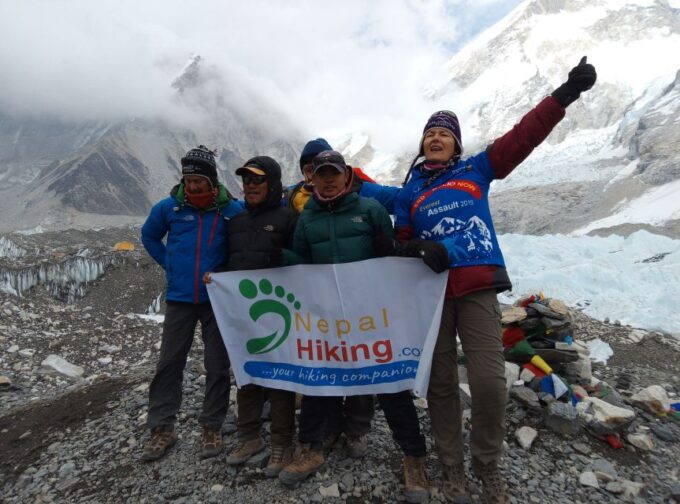
What Is the Average Group Size for This Trek?
The average group size for this Everest Base Camp trek is not explicitly stated in the provided information. However, it’s typical for such guided trekking trips to have groups of around 2-6 participants, allowing for personalized support and efficient logistics.
Can I Extend or Modify the Itinerary?
Yes, travelers can modify or extend the Everest Base Camp trek itinerary. The tour operator allows flexibility, so hikers can add extra days or adjust the schedule to suit their preferences and acclimatization needs.
What Is the Skill Level Required for This Trek?
This Everest Base Camp trek requires a moderate skill level. Trekkers should be physically fit and have some experience with high-altitude hiking. Proper training and preparation are recommended to safely complete the demanding 13-day trek.
How Often Do Trekkers Interact With the Guide?
Trekkers interact with their guide frequently throughout the trek. The guide provides leadership, navigation, and cultural insights, ensuring a safe and enriching experience for the group. They work closely together to navigate the challenging terrain.
Are There Any Age Restrictions for This Trek?
There are no age restrictions for the Everest Base Camp trek, but it’s not recommended for young children or elderly individuals due to the physically demanding nature and high-altitude conditions. The trek is suitable for healthy adults of all ages.
Recap
The 13-day Everest Base Camp trek from Kathmandu offers an unparalleled adventure.
Trekkers will be immersed in the breathtaking Himalayan landscape, exploring Sherpa communities and historic monasteries.
With expert guides ensuring safety and well-being, this journey promises an unforgettable experience for those seeking a challenging yet culturally enriching expedition in the awe-inspiring Everest region.
You can check if your dates are available here: